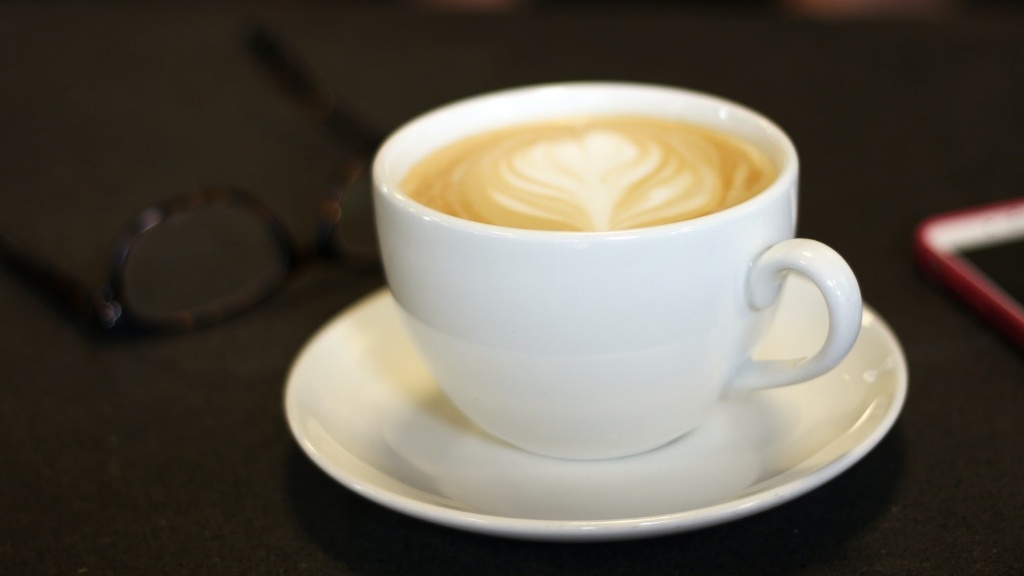For many of us, coffee is a regular part of our morning routine. It helps us get going, and we generally feel more alert after drinking a cup. But why do so many of us then start to feel sleepy shortly after having a cup of java? It’s an interesting and complicated question that can only be answered after looking at the science and research behind caffeine and its effects on our bodies.
What is Caffeine?
Caffeine is a stimulant drug that is found in various drinks and foods. In coffee beans, it is found in trace amounts, but larger doses can be found in drinks like energy drinks, soft drinks, and teas. It has a very mild effect when taken in small doses. Caffeine works by blocking the neurotransmitter adenosine, which is responsible for making us feel tired. As it blocks this chemical, it allows other neurotransmitters, like dopamine and norepinephrine, to take increased effect. This leads to increased alertness and a reduction in fatigue. Essentially caffeine “tricks” your body into being more awake.
Why Does Coffee Make You Feel So Sleepy After Drinking?
Caffeine’s effects on the body are short-lived and as the chemical is broken down in our bodies, adenosine is released again, making us feel tired. At the same time, the surge in dopamine and norepinephrine can cause an energy crash when the levels decrease. This combination of the effects not lasting and the chemical crash can cause people to feel sleepy again shortly after drinking coffee.
A study published in the Journal of Clinical Sleep Medicine found that the main cause of this post-coffee tiredness was due to the decrease in energy levels after the caffeine had been used up. This decrease in energy is usually greater than the increase from caffeine, leading to an overall fatigue.
When Does Coffee Make People Feel Sleepy?
The time frame of when people will start to feel sleepy after drinking a cup of coffee can vary depending on the person and the size of the cup. Most people will start to feel sleepy within 30 minutes to an hour after drinking. This can also vary depending on whether or not the person has had caffeine before. For those who don’t consume caffeine regularly, the effects will be stronger and could last longer.
Can the Sleepiness be Prevented?
People can take several steps to reduce the sleepy feeling they get after a cup of coffee. The most obvious way is to reduce the amount of coffee they drink, as this will reduce the impact of the crash. It is also important to pay attention to when you are drinking your coffee – if you drink it too late in the day, it could interfere with your sleep cycle and cause more problems than it solves.
People can also try drinking more water, as this can reduce the dehydrating effects of coffee. Eating something before or after your coffee can also help slow the absorption of caffeine and help the body to metabolize it more slowly, so the effects last longer.
The Impact of Regular Caffeine Consumption
It is important to be aware that regular consumption of caffeine can lead to physiological dependence. This means that if you are used to drinking coffee every day, the effects will become less and less, which could cause you to increase the amount of caffeine that you take in each day. It is important to be aware of this, as long-term, excessive intake of caffeine can lead to some serious health problems.
Effects on the Body
Caffeine has several effects on the body, both positive and negative. On the one hand, it can improve alertness, reduce fatigue, and increase physical performance. On the other hand, too much can cause jitteriness, irritability, and elevated heart rate. It can also increase the risk of headaches and insomnia. Despite the potential drawbacks, caffeine can still be beneficial if used in moderation.
Effects on Mental Performance
Caffeine has been shown to increase alertness, focus, and even mood. A recent study found that it can even improve memory recall and overall mental performance. This is due to the effects of caffeine on the brain’s prefrontal cortex, which plays an important role in cognitive functions such as remembering and reasoning.
Relation to Sleep
Caffeine can also have an effect on our sleep. Although it is technically a stimulant, caffeine can also have a sedating effect. But this effect only lasts for a few hours and can lead to an energy crash later on. Too much caffeine can also interfere with our regular sleep cycle, leading to insomnia.
Conclusion
Caffeine can be beneficial, but it is important to understand the potential risks and effects it has on our bodies. Regular consumption can lead to physiological dependence, which in turn can lead to several health problems. Too much caffeine can also interfere with our sleep cycle, leading to increased fatigue and craving for more caffeine. The sleepy feeling after drinking a cup of coffee is due to a crash in energy levels that happens when the caffeine wears off. But by drinking more water, eating before or after your coffee, and having regular breaks throughout the day, you can reduce the sleepy feeling you get after drinking a cup of coffee.



